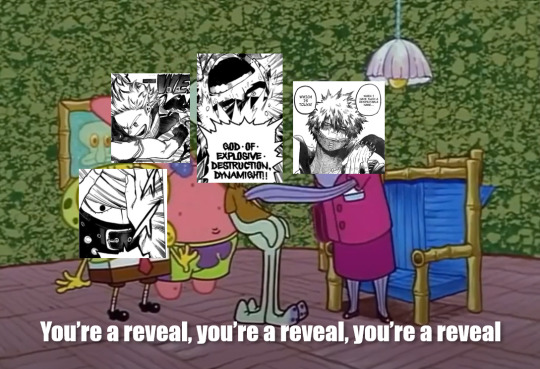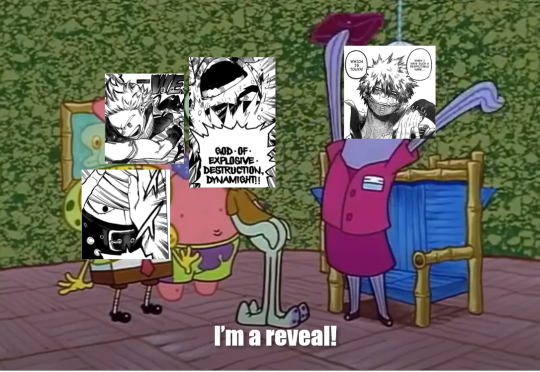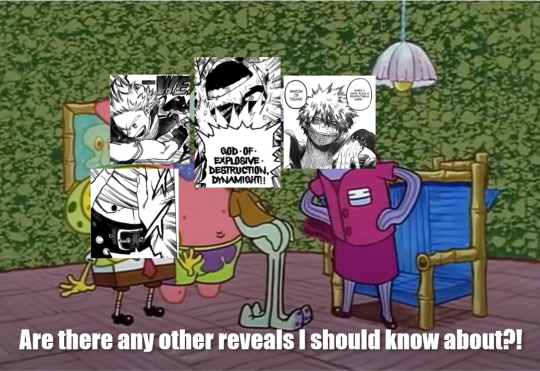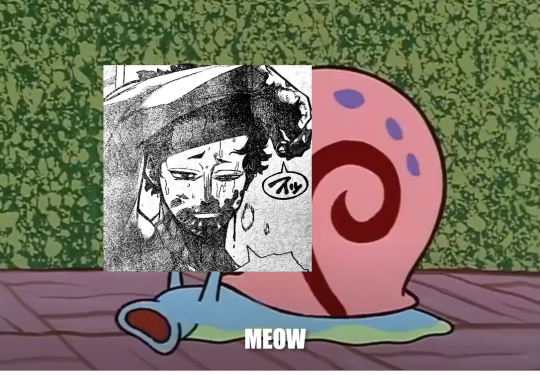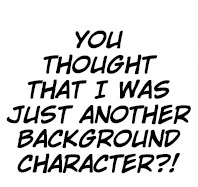Text
Head empty jus Pro Hero FatGum dressing up as Santa for all of UA kids even though they’ve grown out of that phase. But they all appreciate it because it’s cozy, it makes them feel loved and they’re happy.
Aizawa brings all of the kids down to their common room and they decorate a real big Christmas tree with a music playlist that Kaminari and Jirou probably put together playing in the background. And there’s a fire and everything. Bakugo’s is even having a good time (although he tries not to show it) he’s baking cookies and smearing flour across Deku’s face everytime he “pisses him off”. Eri sits on the counter, laughing and swinging her little legs, squishing a bit of dough Bakugo gave her between her hands. And then FatGum comes in with just the biggest smile.
He helps lay out all the presents that the teachers bought for the kids and that’s the one night out of the year that Aizawa tells hero stories to the kids and lets them rest their head on his shoulder. Then they’re all sent to bed with a little head pat from both teachers before FatGum makes his way off to the next dorm.
79 notes
·
View notes
Photo

Reasons why Mr. Compress is the best dad:
literally sacrifices his ass for his kids
insults his kids at the same time
2K notes
·
View notes
Audio

Original Comic by @floccinaucinihilipilificationa
Actual Comic is HERE.
655 notes
·
View notes
Text
Snape and McGonagall in Chamber of Secrets like

620 notes
·
View notes
Text
Re-reading the Chamber of Secrets and I’m losing it at Gilderoy Lockhart telling a crowd of students that Severus Snape, former Death Eater, literally been in wars, inventor of offensive and healing spells “knows a tiny little bit about dueling.”
653 notes
·
View notes
Text
the only way i accept remakes of the Harry Potter movies is if they contain a 31 year old Snape looking directly at the camera every time someone says something stupid
1K notes
·
View notes
Text
Attempting Small Talk
Lupin: So do you have any interests?
Snape: Yes.
Lupin:
Snape:
Lupin: That’s good. Those are good to have.
1K notes
·
View notes
Photo

Snape on Amortentia, because why not?
Based on this post
993 notes
·
View notes
Text
Man, Snape’s life was wild remember when Karkaroff literally invaded Snape’s classroom during class to show him his dark mark and Snape was literally like put that thing away or so help me
891 notes
·
View notes
Text
Why do we love Snape, or the character who was unkindly written
Claire Jordan in one of her Quora essays said that she’s been in fandom for decades and has never seen a character so loved as Snape. I concur. Excluding some recent trends that purposefully misinterpret Snape by projecting onto him a set of stereotypes he was never supposed to embody, Snape remains one of the most loved characters in the Harry Potter universe. Every poll on Harry Potter’s favourite characters confirm that Snape is always on the top 3, sometimes reaching first place.
This is not some “bad boy syndrome”. There are two main reasons for readers to have latched onto Snape so furiously, for Snape to have been so ardently discussed and defended after HBP – and these feelings only intensified after the 7th book. The reasons, I would posit, are:
1. Snape is a character that the narrative portrays as ambiguous.
2. Despite this, the narrative is often, objectively, unfair to Snape especially in favour of other characters.
Let’s address the first point. Snape is ambiguous because he has to be. There are two big plot-twists in Harry Potter: Harry is a horcrux and Snape’s loyalties. These two end up closely connected because it is through the knowledge of Snape’s loyalties that Harry discovers he must die to kill the part of Voldemort that is inside him. Snape is therefore largely written as a suspect in a murder mystery. Several commentators have argued that the structure of a Harry Potter book resembles a crime novel, and I agree. Snape has to appear guilty, but the books have to give enough clues to the reader as to his true loyalties. Independently of authorial intent, this is what makes Snape so compelling. Because:
a. Snape is cruel to his students but he constantly protects them (Harry, Draco, Katie Bell, Luna and Hermione, Neville and Ginny).
b. Snape is described as ugly but his use of language is the most sophisticated of the series to the point it becomes sensual. Just consider his first speech in class about the beauty of potions and how they “ensnare the senses” and “bewitch the mind”.
c. Snape is mean and petty but these characteristics are often accompanied by sarcasm and irony which make some of his most awful comments quite funny, such as him telling Crabbe not to suffocate Neville because he would have to mention it in a reference letter if ever Crabbe applied to a job. There is also a lot of incongruent humour in play with Snape. For example, him reading about Harry’s love life is hilarious because Snape and teenage drama are two irreconcilable dimensions.
d. Snape is cruel and bullying but the narrative offers several reasons for this. While Dumbledore’s past is revealed mostly through conversation, Snape’s past is slowly revealed in images which makes it much more vivid. Snape getting a glimpse of a werewolf at the end of a tunnel. Snape’s father yelling at his cowering mother. Snape upside down and petrified by Sirius and James. Petunia calling him “an awful boy”. More than any other character, Snape is rooted in a social context that brings with it inescapable references: poverty, domestic abuse, neglect, bullying.
e. Snape is often ridiculed (by Neville’s Boggart and by the map) but he is also given the title of “Prince”, a character with whom Harry sympathizes. He is also one of the characters who carries a sword, and whose love is presented as “the best part” of him. These are characteristics that ennoble Snape.
f. Snape is dismissive of people’s feelings but he is also the character who is defending children because of their mothers. Lily because of his guilt, and Narcissa whom he allows to trap him in an unbreakable vow to protect her son.
g. Snape is taken as evil but the character whom the narrator uses as a morality mouthpiece – Hermione – often defends him.
h. Snape kills a man but the narrative is quick to add that his soul would likely remain intact as it would be an act of mercy, arranged between the victim and the perpetrator as Harry reinforces. Harry goes as far saying that Snape “finished him” instead of using the verb kill or murder. Furthermore, we know remorse is something that mends the soul and Snape’s whole arc is about guilt and remorse – immortalized in the scene where Snape weeps at 13 Grimmauld Palace.
i. Snape is apparently a murderer but the narrative goes to some lengths to show that just like Harry Snape has a thing for saving people. “Lately, only those I could not save” and him risking his cover to save Lupin.
j. Snape’s trauma is often discredited but the narrative allows part of his tragedy to come at the expense of the hero’s father whom Harry spent years admiring. A relevant part of James’s goodness is sacrificed in favour of Snape’s own character construction.
k. Snape’s trauma in relation to having been bullied is more often discredited by the narrative, although Fudge’s comment “the man is quite unbalanced” and the comparison established between James and Sirius’s use of Levicorpus and the Death Eaters using it on a muggle woman shows that it is something to be taken serious, although never acknowledged.
This last point leads me to my second assertion that the narrative is fundamentally unfair and cruel to Snape. For two main reasons:
a. Snape’s trauma in relation to the Mauraders is discredited by everyone that counts, namely, Lily and Dumbledore. Only Harry comes closer to understand its dimensions. We can argue as to why this is, and as to whether there was authorial intent or it is simply that JKR didn’t realise how it would sound. Lily nearly smiles when Snape is being bullied which puts in question Lily’s character as well as her friendship with Snape. Both in Snape’s Worst Memory and in the conversation about the prank, she also fails to show concern that her friend was being bullied by the boy she liked.
b. The second instance of unfairness is more serious because it is far more insidious. A careful reading of text will tell us that Snape was set up for death by Dumbledore. That Dumbledore planted the Elder Wand on Snape while thinking its power had died with him and while knowing that Voldemort would eventually reach conclusions about the Elder Wand and wish to possess it, thus killing its current owner. Not only Dumbledore never tells Snape, but he plans it beforehand. This is why he “admits” to Harry that the intention was to let Snape have the wand. Harry understands exactly what this means, and in the Final Battle tells Voldemort that Dumbledore intended the power of the wand to die with him.
This is so insidious – and cruel – that it is never openly acknowledged. Dumbledore betrays Snape, showing an impressive disregard for his life – far more than he showed for Harry’s because he knew Harry had a good chance of survival. But Snape is never given the satisfaction of having this acknowledged in the text. Snape yearned for Dumbledore’s affection but not only Dumbledore denied him that, he also denied him the truth of what he really wanted of him. Snape is betrayed by both his masters at the end. But we are never explicitly told this. This happens because the narrative is unwilling to portray Dumbledore in a truly badly light. His apparent sorrow (“poor Severus”) and his “admission” of guilt are not enough to show him remorseful because the narrative cannot bring itself to say: “I set Snape to die by planting the wand on him so Voldemort would come to possess a useless weapon”. This would change the readers’ view of Dumbledore, especially after Prince’s Tale. Remark on how cruel it is: Snape had to agree to kill Dumbledore in “good faith” so the power of the wand died with him, but all the while Dumbledore knows that Snape would get a target on his back and die from it. Dumbledore manipulates Snape into – possibly – ripping his soul and tricks Snape into his own demise. Snape thought Dumbledore was raising Harry as a pig for slaughter, but he is wrong. It is him whom Dumbledore is raising to die. The fact that this is never openly stated, and is purposefully obfuscated by the language, is somewhat cowardly. Dumbledore barely apologises, he barely recognizes it. If he did, the readers would be horrified. As with Lily, Snape is again sacrificed in favour of apparently “better” characters whom the narrative wants the readers to like more.
However, the flaw in the plan is that…readers aren’t stupid. I caught on to this when I was a teenager, and it has only intensified as I grew older.
Even at the end, Snape understands from the moment Voldemort mentions the wand that he is going to die. JKR said in a tweet that Snape could’ve saved himself, presumably by setting Voldemort straight, and so his silence ensured Harry’s victory. It is a possible interpretation. More possible still is that Snape accepted death after giving Harry his memories. The fact that he stops trying to staunch the bleeding once Harry appears shows it. His “look at me” is the request of a man who knows he’s going to die and just wants to do so by looking at the eyes of the woman he loves. In this sense, following Dumbledore’s words that “there are things far worse than death” and that for an organized mind death is “the next big adventure”, Snape showed far more courage than both Dumbledore and Voldemort who on several occasions tried to fight the inevitability of death.
It is true the narrative offers some vindication for Snape. Harry tells Tom Riddle of Snape’s true loyalties. Riddle is not allowed to die before knowing that Snape had betrayed him and colluded with Dumbledore, all because of a power Riddle doesn’t understand – love. Harry also names the son with his – and his mother’s – green eyes Severus. Finally, Harry tells him that Snape was probably the bravest man he knew.
But still, Snape is not kindly written. There is an underlying cruelty in how Snape is treated throughout the books. Because he is so profoundly unloved, because he is barely shown kindness and because no one ever takes responsibility for what happened to him, the readers feel compelled to do so. That, I think, explains why Snape is so widely loved, and why people are so ready to defend him in unprecedented ways.mak
4K notes
·
View notes
Text
Ron: The stone makes you immortal! No wonder Snape wants it!
(Meanwhile in the dungeons)
Snape:

3K notes
·
View notes
Text
Sometimes a family is three dads and a classroom full of disturbed teens
596 notes
·
View notes

